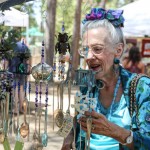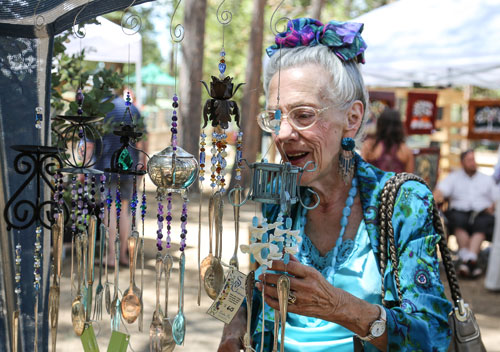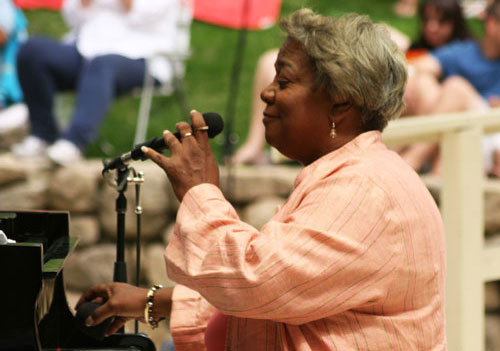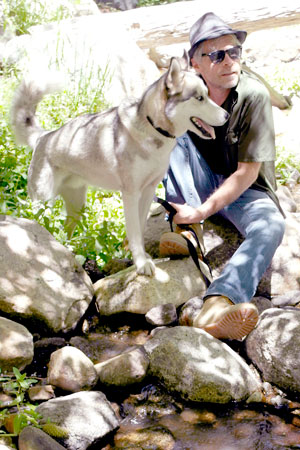
Photo courtesy of Richard Barker
With a background in psychology and philosophy, Rick Barker has long sought to find balance in his life. Stuck in the corporate cell of six- to seven-day weeks and 10-hour days, Barker had a wakeup call in 2003 when he was diagnosed with Parkinson’s. That diagnosis prompted a rethinking and retooling of his life with an eventual move to Idyllwild. “Parkinson’s turned out to be the luckiest thing ever,” said Barker.
“I was making decent money at Dreyers Ice Cream in the sales department when I was diagnosed in November 2003. I continued to work for six more years until they felt I could no longer perform my duties in a timely manner.” With a marriage in 2006, and a recent move to Idyllwild, Barker said he is living the life he wants to live — surrounded by nature, art and many new friends.
Barker, long interested in evolution and how genetic evolution has wired us in certain ways that are hard to overcome, has just published his second book, “Transcending Evolution, A Christian Guide to Understanding, Accepting and Transcending Evolution” (Amazon, 2014), an examination of how, with awareness and recognition of our patterns, we can overcome genetically wired predispositions to certain behaviors and choices.
Barker details how in addition to our species’ atavistic evolutionary wiring — the procreation and alpha drives —other important components of our evolutionary makeup can be used to balance and improve our quality of living. Barker discusses how the empathy drive can be used to counterbalance the alpha drive, allowing us to dislodge our awareness from our own ego and project it onto another being so we can recognize them as individuals and facilitate what Barker calls the “helper’s high” — a drive that compels us to overlook differences with the other and focus instead on commonalities. “It enables us to be able to treat the other as we would wish to be treated,” said Barker, noting that that is the cornerstone of Christian teaching.
He discusses that our fourth drive is an information-centered one, the most powerful of the four. “It compels us to seek and develop information, and to transmit that information to others. It is the impetus behind language and cultural evolution,” he explained.
But, and this is where his story leads to choices, the info drive also creates in us a fondness for the narrative we develop as our own storytellers, a need to ensure that our own story has value. “It instills in us a powerful bias to value the description [our story] over reality,” he said. “Any information within your story is regarded as truth and vigorously protected against all invaders, i.e. contradictory information,” he explained.
“Happily, we have the capacity to overrule any aspect of any drive,” he noted. “You can rise above your story and even rewrite it — that is, we have the capacity to transcend evolution’s agenda and reinstate an inner balance between competition and cooperation. I explain in detail [in the book] how to do that.”
“What I can contribute [through this book] is my understanding of the brain,” he said. “I think of myself as a big picture guy. I stay on top of neuroscience aspects.”
He communicates a passion about our ability to make choices that lead, as they have in his life, to more balance, so that people become aware of the agenda evolution has and how to, with recognition, overcome that evolutionary hard wiring.
Idyllwild Author Series founder Eduardo Santiago interviews Barker at 3 p.m. Sunday, July 6, on the deck of Cafe Aroma. There is no charge.
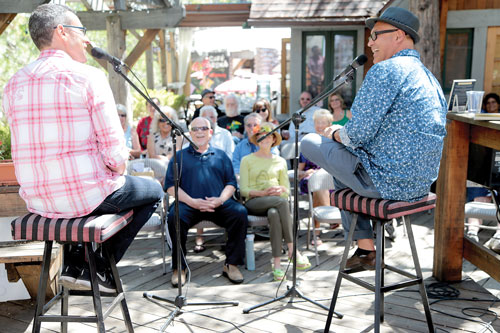
Photo by Jenny Kirchner









